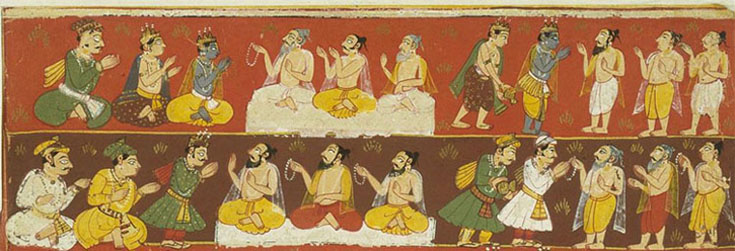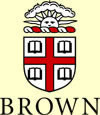The Brown Conference on Early Indian Philosophy in the
Mahābhārata will explore new ways of understanding the philosophical parts of the epic Mahābhārata in the light of recent thinking about and research on that epic and the intellectual-historical genres and matters that are found in it. The discussion and analysis of the philosophical and theological texts found in the Mahābhārata have received a considerable stimulus in the past fifteen years from a number of major works. Angelika Malinar’s Rājavidyā and its revised English edition provide a highly probing examination of many themes and problems of epic philosophy and theology, particularly as refracted through the prism of the Bhagavad Gītā. The Nārāyaṇīya Studien of Peter Schreiner, Angelika Malinar, et al., move the discussion forward in time from the doctrines of the Gītā in the direction of the early Vaiṣṇava Purāṇas, while Johannes Bronkhorst’s Greater Magadha points to texts and a historical development usually regarded as anterior to the Mokṣadharmaparvan. Particularly relevant is his re-opening the discussion of the history of the Yājñavalkya Kāṇḍa of the Bṛhadāraṇyaka Upaniṣad. This point regarding the history of the Upaniṣads leads to Thomas Oberlies’s recent edition, translation, and discussions of the Śvetāśvatara Upaniṣad. Also, apropos the close analysis of epic passages, I would mention one item, which, though it is not recent, is quite important for the close study of the ‘didactic epic’ and has never received the attention it deserves: Ian Proudfoot’s Ahiṃsā and a Mahābhārata Story: The Development of the Story of Tulādhāra in the Mahābhārata in Connection with Non- Violence, Cow-protection and Sacrifice (Canberra: 1987). Not strictly “philosophical,” but broadly very relevant is Adam Bowles’s Dharma, Disorder, and the Political in Ancient India (Leiden: 2007). As I close this list, I will mention here as well, as tangentially relevant, my translation of the first half of the Śāntiparvan and some of my discussion of the history and significance of that text. These works and some others[1] raise a number of themes and ideas with which to examine and interrogate the philosophical and philosophically relevant texts and passages of the Mahābhārata.
By “philosophy” the conference intends, broadly, all those traditions of verbally expressed thought dealing with ultimate matters of being, knowledge, and action. Thus theology and ethics are included, and narrative and homiletic, as well as analytic, traditions of exposition are included here. By “Early Indian Philosophy in the Mahābhārata” reference to the whole of the Mahābhārata is intended, not just the Mokṣadharmaparvan. And obviously relevant to the Mahābhārata are those traditions of Indian thought that are immediately anterior, collateral, and closely consequent to the MBh—those Upaniṣads which we have good reason to believe were composed prior to 300 CE, similarly old Buddhist and Jain texts, Brahmanic dharmaśāstras of the same period, and the Harivaṃśa and any parts of old Purāṇas like the Viṣṇu Purāṇa which can be shown to have been composed or in circulation prior to 500 CE.
[1] Bronkhorst’s Two Sources of Indian Asceticism (1993) and, going back over twenty years, his Two Sources of Meditation in Ancient India (1986). Various smaller or differently focused pieces by myself and a number of the other invitees of this conference (see the forthcoming bibliography) also fit this rubric. We also expect much of general relevance from David White’s Sinister Yogis (Chicago: University of Chicago Press, 2009), which draws much from the Mahābhārata.


